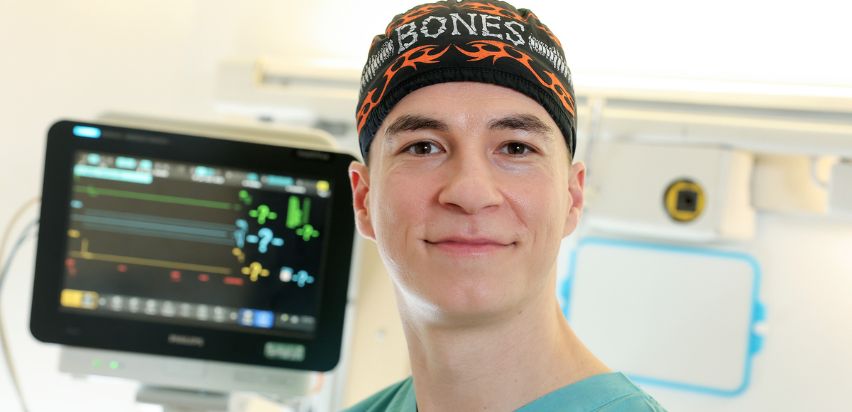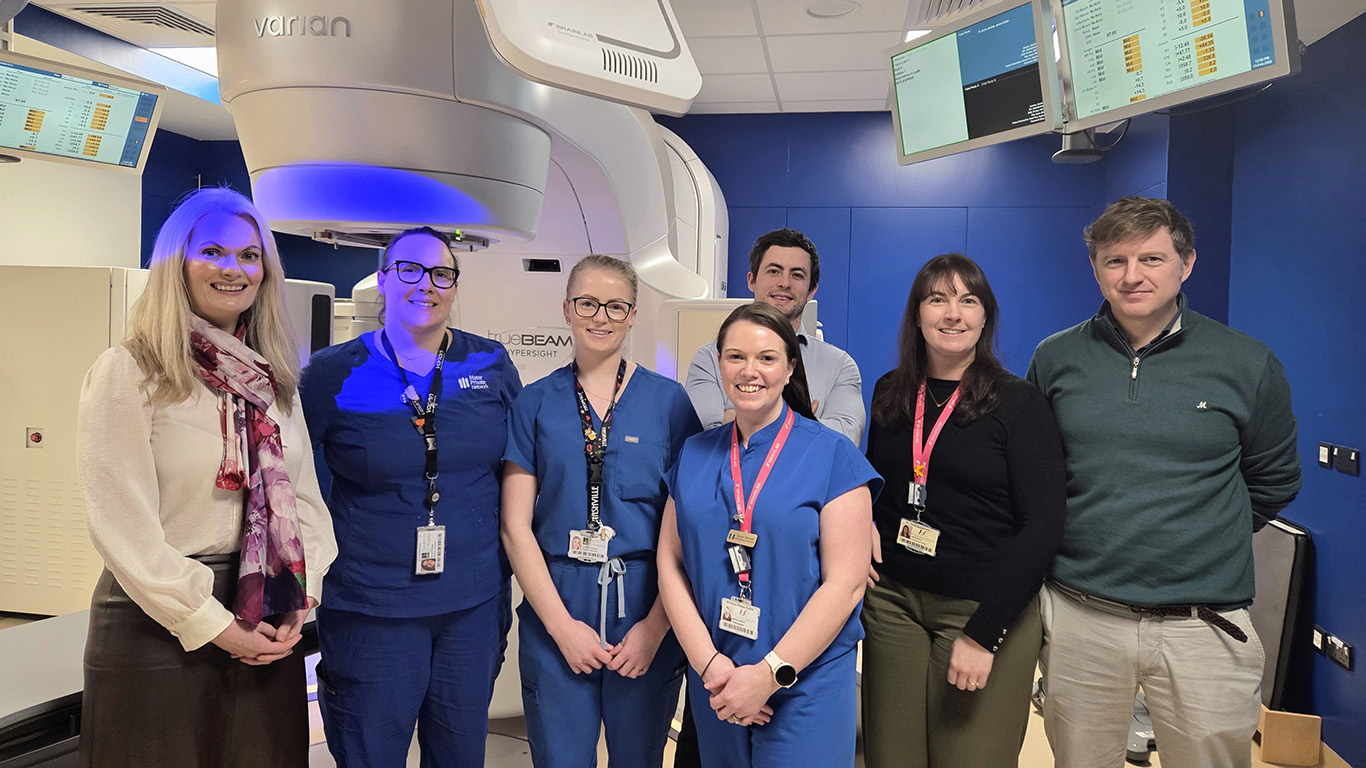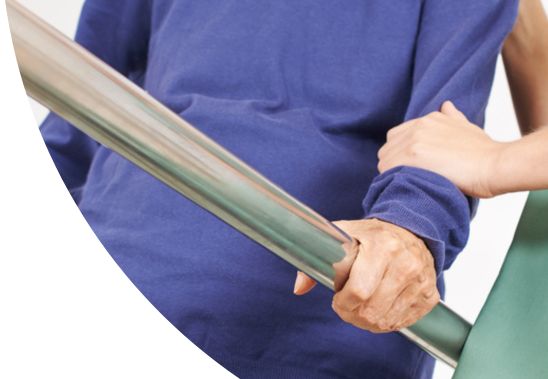27th March 2024
OrthoChats - Paulo Melo - Orthopaedic Advanced Nurse Practitioner
Paulo Melo is an Orthopaedic Advanced Nurse Practitioner (ANP) working at Mater Private Network in Dublin. He qualified as a general nurse in Portugal before moving to Ireland in early 2008, where he specialised and completed his master’s degree in Orthopaedics and Trauma at the Royal College of Surgeons in Ireland (RCSI).
He then went on to complete diplomas in Healthcare Management in the National College of Ireland and Clinical Health Sciences Education in Trinity College Dublin, where he took on a teaching role in 2019.
He completed advanced practice studies at Trinity College Dublin, graduating with an award for achieving the highest end-of-year mark. More recently, he has commenced a PhD focusing on advancing Advanced Practice Nursing
Paulo joined our orthopaedic team in 2021, becoming the first ANP working in the private sector.

Can you describe your role as an Orthopaedic Advanced Nurse Practitioner (ANP)? What does a day in your life look like?
The purpose of the Advanced Nurse Practitioner role is to extend the orthopaedic service by providing rapid access and specialist care to patients, so they can be seen and treated more promptly. This involves me undertaking complete episodes of patient care, including initial assessment, diagnosis, planning, treatment, and discharge.
My daily routine begins with an inpatient ward round, checking how the patients are feeling and if they experienced any difficulties during the night. I spend the rest of my morning in the operating theatre where we perform hip and knee surgeries. My afternoon is spent in the clinic – meeting with patients, discussing their cases and advising on the best treatment pathway, including both non-surgical and surgical methods.
Before finishing up for the day, I check patients again to ensure they are comfortable for the night and any issues are resolved before I leave. I think it’s very reassuring for patients to see a familiar face when they’re going into surgery and during recovery, as we understand that being in the hospital can be a stressful time in a person’s life.
What types of patients do you typically treat?
Over the last 18 years, I have treated all types of orthopaedic and trauma patients. As an Advanced Nurse Practitioner, I specialise in treating patients who experience hip and knee issues. As mentioned previously, not all patients with hip and knee issues require surgery and the orthopaedic team will always explore other treatment options that are most suited to each patient’s unique case.
During their episode of care, patients can expect to meet me at many different stages. I first meet patients during their initial consultation, I am in the operating theatre during surgery, I see them after their surgery on the ward, and in the outpatient clinic for their six-week follow-up appointment.
Orthopaedics
The orthopaedics centre provides elective services for patients with acute and chronic musculoskeletal issues requiring reconstruction or joint replacement.
Learn more
What other teams do you collaborate with to deliver patient care?
Throughout their treatment journey, patients can expect to meet different members of the orthopaedic team including consultants, nurses, physiotherapists, health care assistants, and myself. Patients will also encounter other teams that may not be directly involved in their treatment pathway, but who are there to support and assist them in whatever way they can.
What are some of the common conditions you come across?
In my daily practice, I encounter patients with many different conditions. However, the most common diagnosis among my patient cohort is arthritis, and osteoarthritis in particular. Osteoarthritis is a degenerative disease that affects different joints in the body. It can be extremely painful and debilitating as it wears down the cartilage that acts as a protective cushion at the end of bones. When the cartilage wears down, the bones rub against each other, causing you to feel pain. It is the most common form of arthritis, affecting over 400,000 people in Ireland and many millions all over the world.
Treatment options range from conservative and non-surgical to surgical, depending on the progression of the condition and its impact on patient’s quality of life. Conservative treatment options include weight loss to reduce some of the pressure being put on the joints, physiotherapy to strengthen the muscles and improve mobility, and medication to help with any pain and reduce inflammation. If patients are still experiencing moderate amounts of pain while employing conservative treatment options, injections may be recommended as they are a non-surgical, targeted form of treatment. There are several types of injections that target individual needs, including reducing inflammation, stimulating healing, or lubricating the area where the cartilage has worn away to prevent further degradation of the joint. However, if these treatments don’t reduce the pain, surgical intervention may be recommended to prevent further damage and most importantly improve their quality of life.
Can you discuss the role of preventative measures and prioritising musculoskeletal health?
While we can’t stop osteoarthritis from developing, we can slow down the progression of this condition and ultimately avoid surgery. Each year, we’re seeing increasing numbers of young patients, often linked to obesity. By staying active and maintaining a good diet and weight, you could delay treatment by several years. Low-impact exercises, such as swimming or cycling, are great options to maintain good musculoskeletal health, help you maintain a healthy weight, and relieve some of the pressure being put on the joints.
If your condition has progressed to a point where a joint replacement is advised by your consultant, staying active before the procedure will lead to an easier recovery and improved outcomes. Your physiotherapist will be able to recommend exercises best suited to your needs.
What do you enjoy the most about your role?
My favourite part of my job is observing the complete patient journey from beginning to end. When I first meet patients during their initial consultation, they might be in pain or discomfort due to their hip or knee issues. As we guide them through treatment, whether surgical or non-surgical, it's incredibly fulfilling to witness their improved quality of life at the end of their journey, and to realise that you've had a positive impact on someone's well-being.










.jpg?sfvrsn=ca53d7a8_1)

